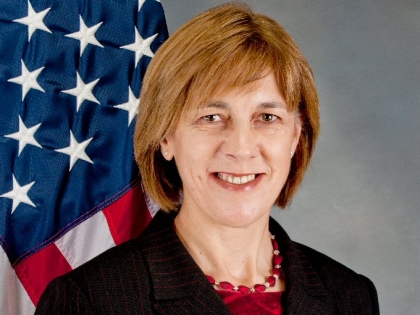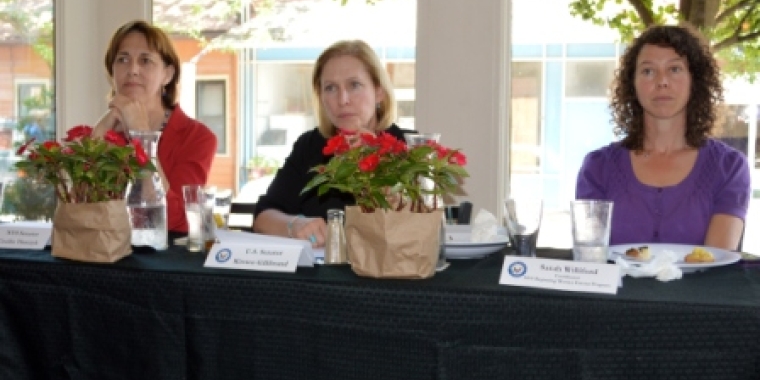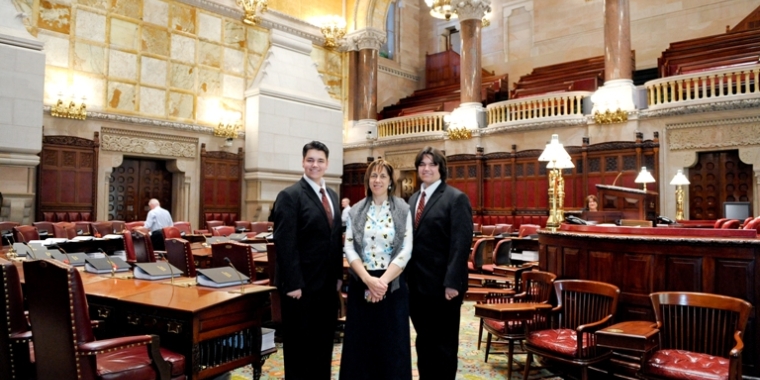
Daily Mail: Gillibrand, Tkaczyk host forum for women farmers

Monday, July 21, 2014
By Kyle Adams
ATHENS — Women farmers from all over New York came to Greene County on Sunday to talk about the unique challenges and obstacles they face in a forum hosted by U.S. Senator Kirsten Gillibrand, New York State Senator Cecilia Tkaczyk, and the New York State Beginning Women Farmers Program.
About 40 people attended the discussion, held at Crossroads Brewing Company in Athens, to not only voice their concerns, but to find out how the state and federal governments can help.
According to Sarah Williford, of NYS Beginning Women Farmers Program, about 25 percent of farmers in the northeast are women, the highest concentration anywhere in the country — but that does not necessarily translate to farm ownership, she said.
Nationwide, the number of farms run by women increased from 5 percent to 14 percent from 1978 to 2007, according to a 2013 United States Department of Agriculture report.
Some of the major topics of discussion at Sunday’s forum were access to and protections for farmland, access to capital for new or expanding farms, migrant labor, and excessive regulation.
“My sister and I own about 200 acres of farmland and we’re trying to turn it over and actually utilize it as farmland,” said Posie Shaw, who owns Sky Acres Farm and Retreat in Schoharie County with her sister, Jeanne Christiansen. “But we’re lacking equipment and things we need to get going and we feel like were just hitting brick walls every time. We want to farm our land. We want it to be productive.”
The pair said they had trouble even getting neighboring farmers to harvest hay from their fields last year because they had gone fallow. Many of the dairy farms in the county have closed up, they said, so they’re passionate about maintaining this land as a farm instead of selling it off for some other, possibly more lucrative, use.
“This is what we’re looking at for retirement, is to be on the family farm,” said Christiansen. “But it’s so hard to get started without a track record.”
Others had similar stories: trouble holding on to land, acquiring land, or making the best use of the land they have. Tkaczyk, the only active farmer in the state senate, said access to capital for agricultural businesses is undeniably an obstacle.
“We definitely know we need to provide more ways to get access to capital,” she said.
The problem is exacerbated for women, suggested Gillibrand, because of ingrained, likely unnoticed, stereotypes of farming as a male-dominated profession.
“Women-owned businesses typically have a much harder time getting access to capital, it is no secret,” she said. “Women start their businesses with eight times less capital than men do. And largely, it’s because a lot of our lenders are all male.”
Tkaczyk suggested looking for alternative lending institutions outside of banks, like the Community Loan Fund of the Capital Region, a non-profit community development financial institution.
“They’ve done the types of loans you’re looking for and I would encourage you to reach out to them,” she said to those gathered.
Claudia Kenny, of Little Seeds Farm in Chatham, told the story of one of her workers who has been employed with her for nearly 15 years and has had several children here, but she and her husband now face deportation. She asked Gillibrand and Tkaczyk if there was any path for this woman to become a legal citizen.
Tkaczyk said immigration is a federal issue, and “it’s been very frustrating that [it] has not be dealt with on the national level, because it does impact farmers here and all over the country.”
Gillibrand expressed similar frustrations, noting that it’s been a “struggle” to pass meaningful immigration reform.
“It’s a shame,” she said. “What I wish my conservative colleagues would recognize is there’s a humanitarian issue, but there’s also an economic issue. And if we can’t pass comprehensive immigration reform, we can’t tap into the full potential of our economy. Our farms won’t thrive, we have industries that will lose their workers.”
Carol Clement, owner of Heather Ridge Farm in Preston Hollow, speaking about an issue that all seemed to agree with, said excessive regulations make it difficult for small farms to get started.
“USDA regulations make it really hard for small slaughterhouses to exist,” she said. “We need those regulations looked at and maybe made more appropriate for small farmers.”
In response to Clement and others, Gillibrand said lowering the high cost of doing business in New York — from regulations and mandates to insurance, taxes and workers’ compensation — is a “long-term goal,” but “entirely worth it.”
“It’s going to take a brilliant governor, enormously effective legislature and a lot of will from the community,” she said. “It’s possible, but it’s going to have to be a full-court press.”
Throughout the discussion, guests, representing not just themselves as farmers, but a variety of agricultural groups and organizations, shared resources, tips, and contact information.
“For everyone to leave today knowing one person you’re going to work with going forward is very valuable,” said Gillibrand. “Mentoring each other is the most powerful thing we can do.”
After the forum, both Gillibrand and Tkaczyk said they would take this input back to their offices to look for possible solutions.
“The farmers raised concerns from affordable access to farmland, access to capital, to immigration reform and all those issues fundamentally affect New York State,” said Gillibrand. “These are ideas I’m really going to work hard on in Washington to try to find strategies and tax benefits so farmers can get access to land they need and capital they need to grow.”

